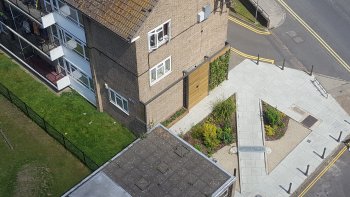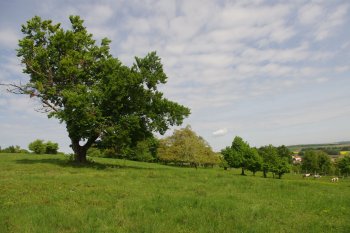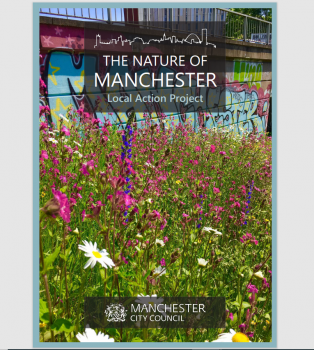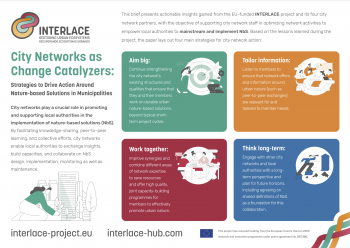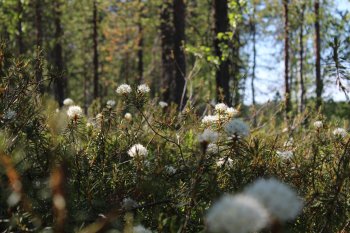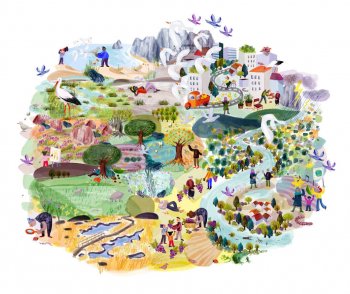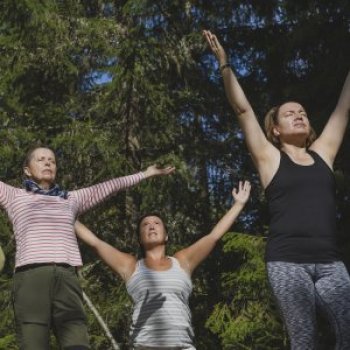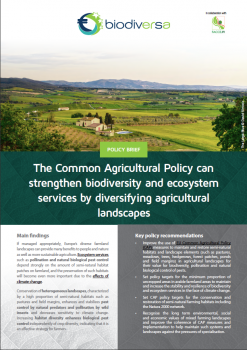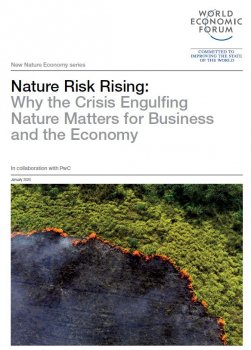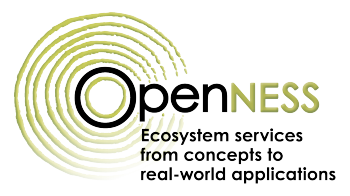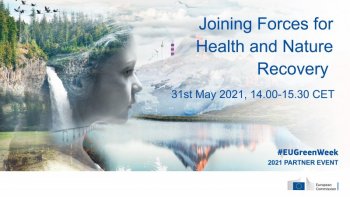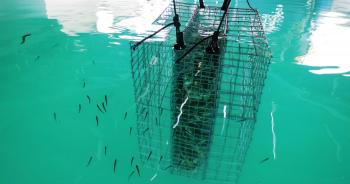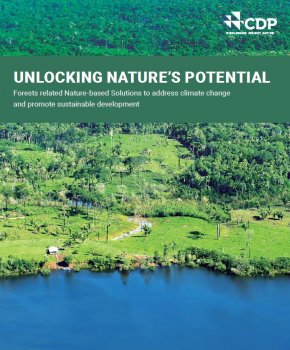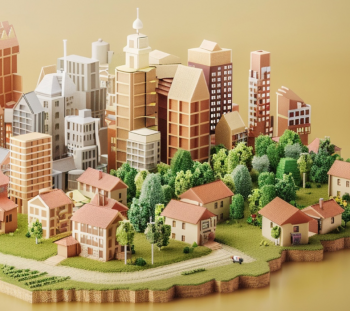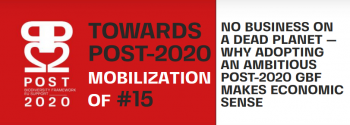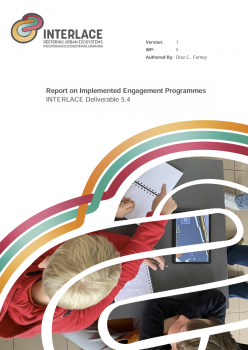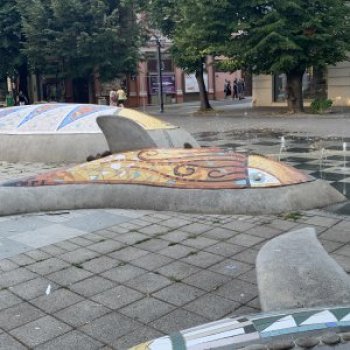Marketplace
Nature-based solution evaluation indicators: Environmental Indicators Review
A report comprising reviews of core and recommended evaluation indicators for evaluating the benefits, co-benefits, and trade-offs associated with nature-based solution indicators. Review comprises those indicators selected within the Connecting Nature WP1 indicators scoping coproduction exercise
MEZŐGAZDASÁG: Agrárerdészeti tudástár
" Az agrárerdészet mezőgazdasági kultúra és fák harmonikus együtt-termesztése, kiegészítve esetleg más területhasználati módokkal, egy jövedelmező gazdálkodás kialakítása érdekében." Az alábbiakban a témához kapcsolódóan több, átfogó tudásanyagot gyűjtöttünk össze, melyek hasznos
The nature of Manchester. Local Action Project
In 2017, the City of Manchester become one of the 22 ‘Citylab’ study cities being undertaken across Europe as part of the European Commission Joint Research Centre (JRC)-funded EnRoute Project. The EnRoute (enhancing the resilience of urban ecosystems through green infrastructure) Project forms a
City Networks as Change Catalyzers: Strategies to Drive Action Around Nature-based Solutions in Municipalities
City networks play a crucial role in promoting and supporting local authorities in the implementation of nature-based solutions (NbS). By facilitating knowledge-sharing, peer-to-peer learning, and collective efforts, city networks enable local authorities to exchange insights, build capacities, and
Forest Biodiversity in Europe - From Science to Policy
This report aims to explore the importance of biodiversity in the context of European forests and to make suggestions on how this biodiversity can be effectively maintained and enhanced through protection, management and restoration. The report is meant for all kinds of decision-makers at the EU,
Nature-based Solutions Made Easy
About this guide: Have you heard about nature-based solutions and want to know more? Then read on as NetworkNature helps you understand what nature-based solutions (NbS) are. You will also be able to identify those solutions that claim to be NbS but are not. We will introduce you to quality
PATHWAYS FOR SYSTEMIC INTEGRATION OF NATURE-BASED SOLUTIONS
This report identifies and elaborates the key stepping stones – pivotal actions – that can unlock the potential for mainstreaming urban nature-based solutions. Using the examples of climate change and biodiversity, they examine how stepping stones can be aligned to generate promising pathways for
Lahti Health Forest Informational Brochure
Curious about the lay of the land at Lahti's new health forest? Then check out this new brochure which tells you what you will discover there and the many benefits of a guided experience in nature. Publication Date: 06 Sep 2023 Author(s): Suutari Taru
The Common Agricultural Policy can strengthen biodiversity and ecosystem services by diversifying agricultural landscapes
“The Common Agricultural Policy can strengthen biodiversity and ecosystem services by diversifying agricultural landscapes” is based on the combined results of the FARMLAND, APPEAL, CONNECT, EC21C and ECODEAL projects, funded by BiodivERsA and FACCE-JPI. This 4-page brief presents key
Nature Risk Rising: Why the Crisis Engulfing Nature Matters for Business and the Economy
The World Economic Forum’s 2020 Global Risks Report (GRR), through its comprehensive risks perception survey, ranks biodiversity loss and ecosystem collapse as one of the top five risks in terms of likelihood and impact in the coming 10 years. Yet general confusion persists on what amount of nature
OpenNESS Synthesis paper: Public goods
Public goods represent a particularly complex category of environmental resources. The increasing importance of the concept of public goods in national and international legal frameworks, particularly relating to questions surrounding the role of private or public actors in providing and
NetworkNature EU Green Week Event 2021 Presentations & Recording
The International Union for Conservation of Nature (IUCN), as part of the Network Nature H2020 project, hosted a virtual European Green Week partner event on May 31st 2021, titled “Joining forces for health and nature recovery”. Find the session’s presentations from Celine Charveriat and Matthias
The Biohut
The Biohut is an artificial fish nursery meant to equip port infrastructures such as docks, pontoons or dikes. By providing food and shelter to the young fish, it restores the ecological nursery function that was lost when natural shallow coastal water were turned into urban environment. The
UNLOCKING NATURE’S POTENTIAL Forests related Nature-based Solutions to address climate change and promote sustainable development
Active participation of business is a core driver in achieving international environment and development agreements, namely the Paris Agreement, the Convention on Biological Diversity (CBD) and the Sustainable Development Goals (SDGs), and their contribution should be promoted. This briefing
CONEXUS Policy Brief 8 -Localising the SDGs: The untapped potential of nature-based solutions in cities
This policy brief explores the potential of nature-based solutions (NbS) in cities to localise global sustainability goals and targets such as those enshrined in the 17 Sustainable Development Goals (SDGs). It presents the methodology used in CONEXUS to capture policy-relevant evidence on the
Making green economy happen: Integration of ecosystem services and natural capital into sectoral policies
The integration of ecosystem services and natural capital into the functioning of economic sectors provides a concrete means to initiate a shift towards green economy. This process starts with the integration of ecosystem services and natural capital into the policies governing the different
No business on a dead planet — why adopting an ambitious post-2020 GBF makes economic sense
Nature is at a tipping point. More than 1 million species are threatened by extinction 1, 75% of world’s land and 66% of the marine environment 2 are significantly altered by humans, and the temperature is expected to rise between 2.6°C and 3.9°C 3. The science is clear—the nature crisis must be
INTERLACE report on implemented engagement programmes
The INTERLACE project has been proactive in targeting citizens as part of its objective to increase public awareness and understanding of urban ecosystem restoration and the importance of nature in cities more generally. This objective has been delivered via a Citizen Engagement Programme, which
- Report
Nature4Cities - Social acceptance method
The Nature4Cities social acceptance method is an NbS implementation support tool. This methodological tool aims to study social acceptance (socio-political, community and market acceptance) and barriers (social, economic and cultural) as key factors for the implementation of NbS projects. It is
Seedbed Intervention:Burgas
Burgas organised its seedbed intervention in close proximity to one of the two pilot areas. The green area between “Gurko“ parking lot and Oborishte street is the pilot site for the GoGreenRoutes project in Burgas. It is located in an area of the city centre which is heavily built with large and
- ‹ previous
- 34 of 55
- next ›

